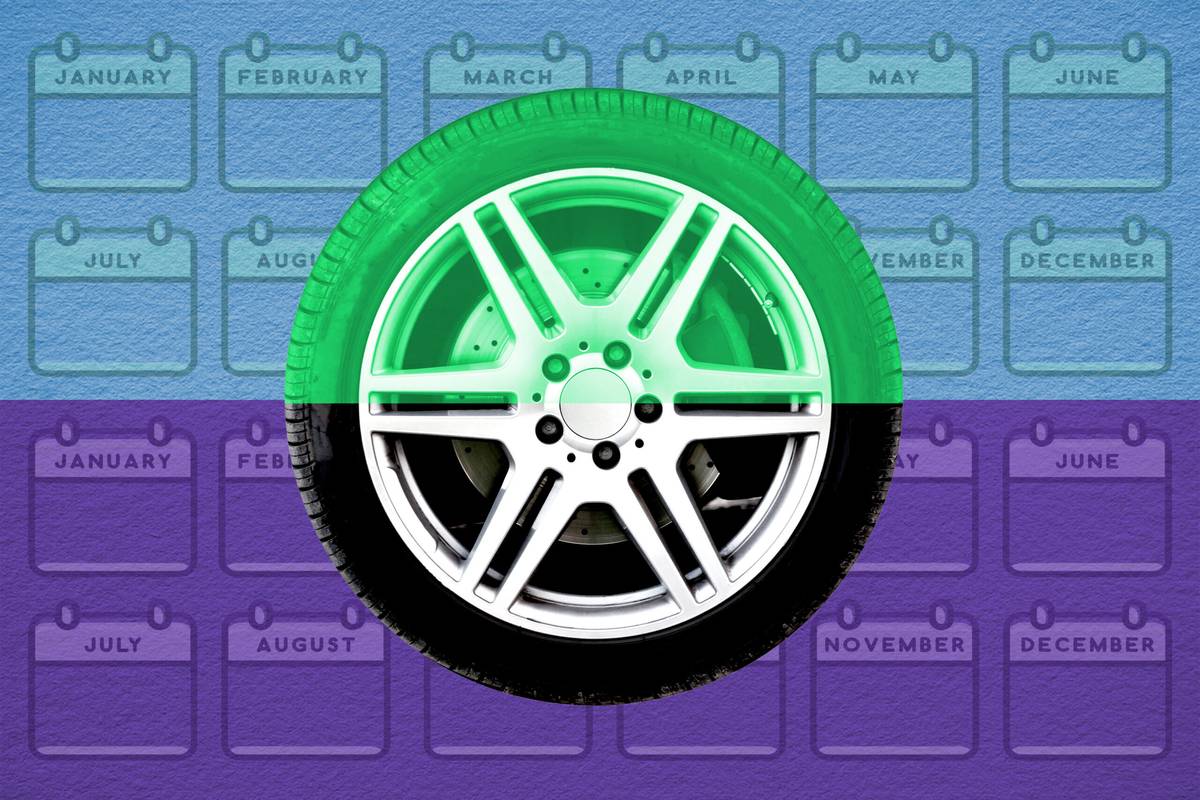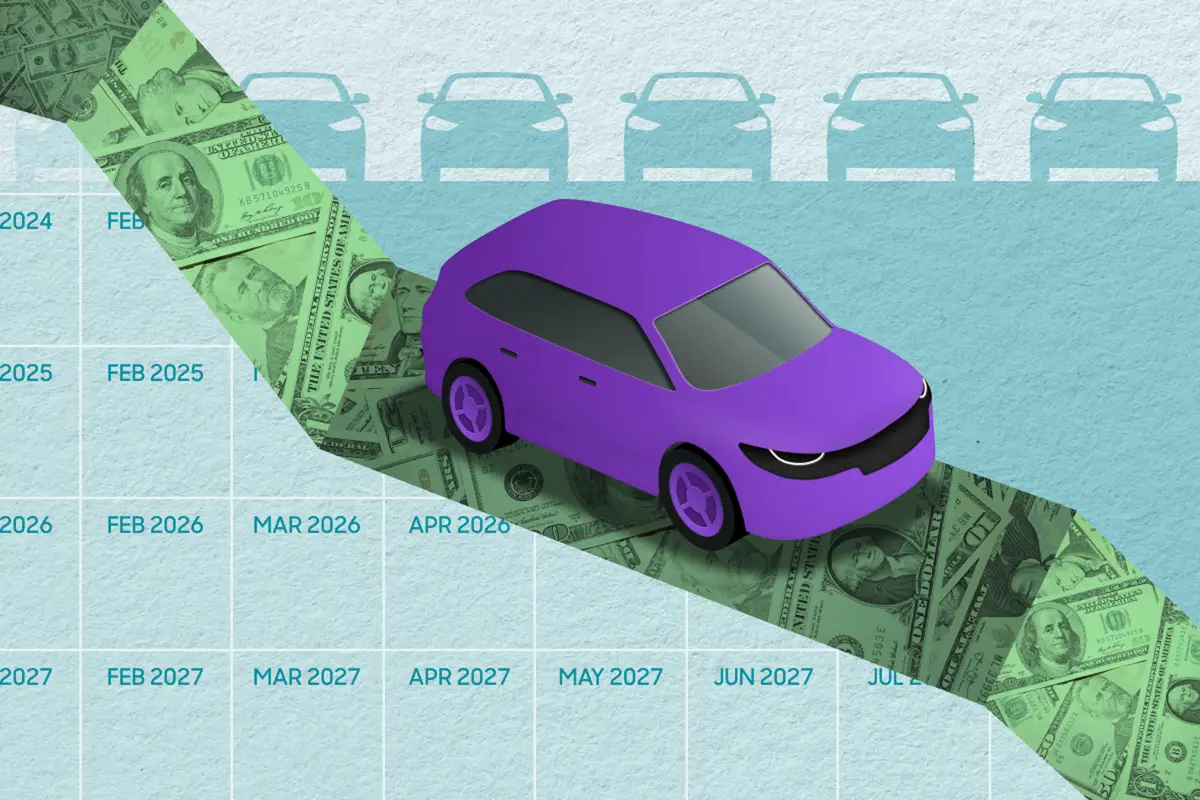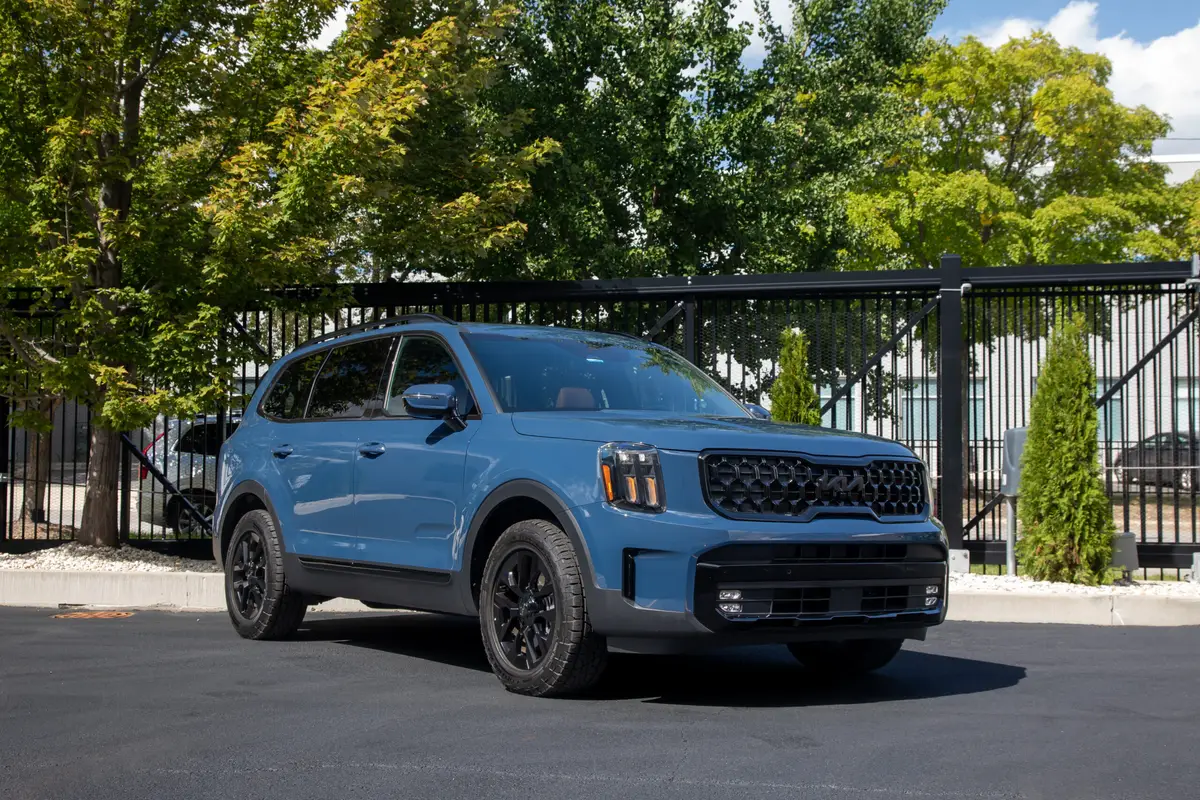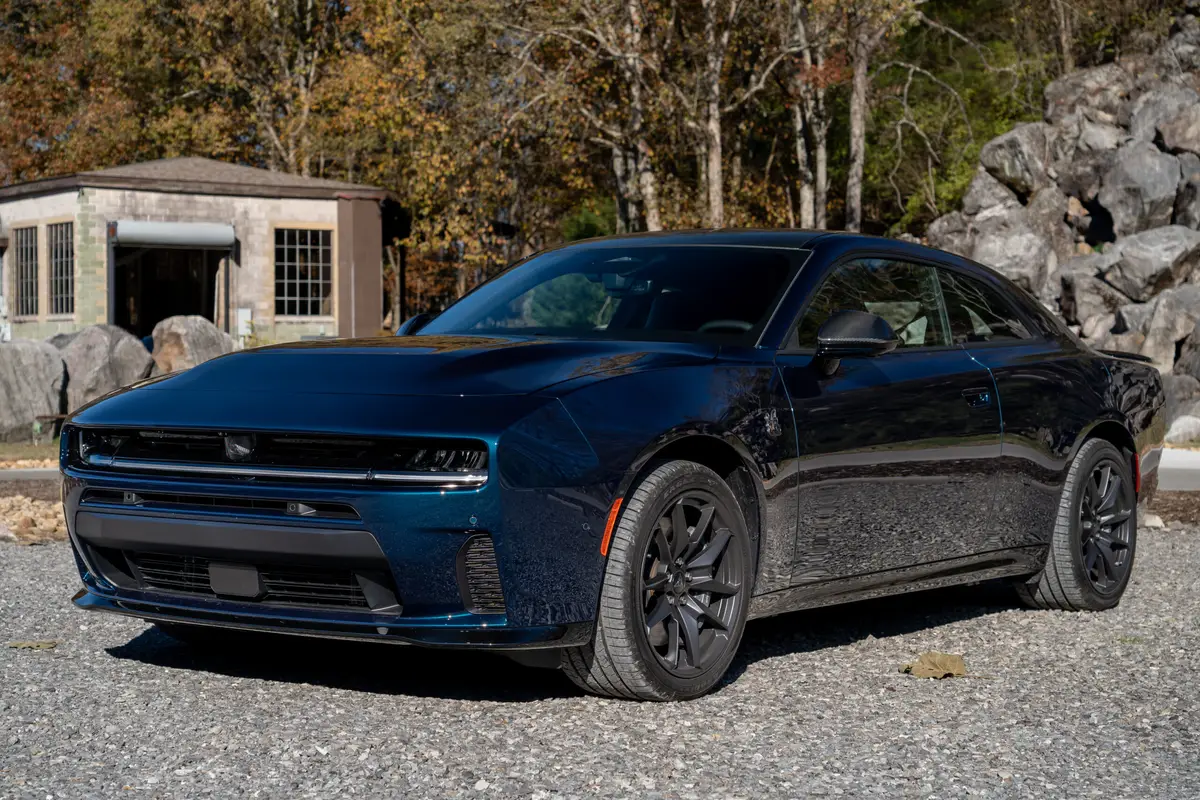Do EVs Wear Through Tires More Quickly Than Gasoline Cars?

Electric vehicles tend to wear out tires more quickly compared to similar gasoline cars. Although about a 20% reduction in longevity is often cited, wear for EV tires varies by vehicle and can be worse on performance-oriented models that are fitted with softer tires for better grip.
Related: How to Check Tire Tread
Why Do EV Tires Wear More Quickly?
A major factor in increased tire wear is that EVs tend to be heavier than similar gas cars, sometimes by as much as 20%. A good example is the BMW 4 Series Gran Coupe, which offers both gas and all-electric versions, making for a fairly good apples-to-apples comparison. The gas-only 430i weighs 3,792 pounds in rear-drive form, while the all-electric rear-drive i4 eDrive35 tips the scales at 4,553 pounds — some 20% more.
Besides being stronger to support the weight of the heavier EV, tires made for EVs are typically aimed at providing reduced rolling resistance to increase driving range and lower road noise because EVs are quieter; other considerations for them are ride comfort and grip for acceleration, cornering and braking. The tires are made to the car manufacturer’s specifications — where cost is also a consideration — and those factors may overshadow the wear rate, as well. After all, driving range is an advertising draw, and noise would be noticeable on a test drive, but how long the tires last is not likely to be a consideration in the dealer’s showroom.
Something else that affects tire wear on EVs is acceleration. Since electric motors produce maximum torque as soon as they start to turn — and most modern EVs produce quite a bit of it — drivers can easily prod the throttle a little too aggressively on take-off. The instant “snap” that results might be fun, but it can also cause the tires to slip, increasing wear. Usually the slippage isn’t even noticed by the driver as the car’s traction-control system keeps it to a minimum, but the wear it causes can add up. The answer here is to move a little more gently away from a stop.
More From Cars.com:
- What Are Low-Rolling-Resistance Tires?
- Do I Need to Replace More Than One Tire at a Time?
- How to Properly Check and Put Air in Tires
- What Should My Tire Pressure Be?
- What’s the Difference Between Summer, Winter and All-Season Tires?
Replacing Worn EV Tires
Particularly if you think your EV’s original tires wore out too quickly, you might be tempted to replace them with regular non-EV tires, partly because EV-specific tires tend to cost more. But that’s probably not a good — or even economical — choice.
First, you’d have to find tires that have a sufficient load rating to handle the EV’s added weight. Many of the features that go into an EV’s tires to reduce rolling resistance will then be absent, meaning your range will likely suffer and your per-mile electric costs will be higher.
Furthermore, an EV’s weight and other considerations, such as the ability to better handle that instant torque surge an EV can generate from a stop, prompt changes to the tire’s design, which wouldn’t be reflected in regular tires. And then there’s road noise: EV tires often come with sound-deadening strips on the inside of the tread to reduce road noise, which stands out more because an EV is quieter than a gas car.
Most major tire manufacturers make EV-specific replacement tires. Ian Coke, chief technical officer for Pirelli North America, says the company’s Elect line of EV tires is designed to put a little more emphasis on reduced wear than original-equipment tires might, and that they carry roughly the same tread-wear warranty as the company’s non-EV tires. He also pointed out that a regular tire would probably experience 5%-20% faster wear than an EV-specific tire when used on an EV.
The bottom line is that even if you feel your EV’s original tires didn’t last as long as you think they should have, it’s best to replace them with new EV-specific tires. Some might even provide longer wear than the originals.
Related Video:
Cars.com’s Editorial department is your source for automotive news and reviews. In line with Cars.com’s long-standing ethics policy, editors and reviewers don’t accept gifts or free trips from automakers. The Editorial department is independent of Cars.com’s advertising, sales and sponsored content departments.
Featured stories

15-Year Car Loans Aren’t a Thing, But Americans Are Getting More Comfortable With Long Loan Terms

2025 Kia Telluride Review: Rougher Roads Ahead



